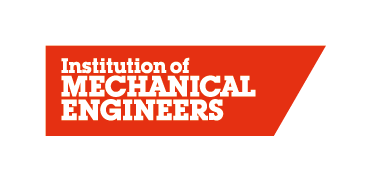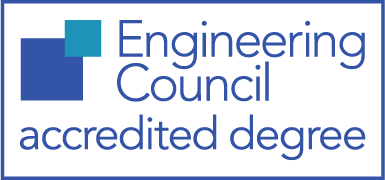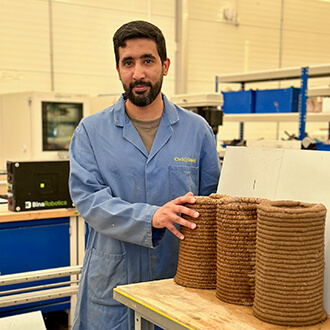Overview
Brunel’s Advanced Mechanical Engineering MSc degree allows you to specialise in one of two streams, thermofluids or solid body mechanics, and will give you the thorough learning experience you need to take your career in these areas to the next level.
This advanced course will help you to develop the versatility and depth to deal with complex challenges in fluid or solid engineering faced by senior engineers. It will provide you with the advanced knowledge and understanding to apply your scientific skills to solve problems and design machines that help us enjoy a better lifestyle. Brunel’s expert academics are conducting some of the latest research in the field and this feeds directly into the course teaching. They collaborate with major oil companies, vehicle manufacturers, and leading industrial firms and government laboratories. We also work with universities around the world.
You’ll have access to our well-equipped laboratories with dedicated areas for fluid mechanics, internal combustion engines, vibrations and structural testing, and will use our high-tech computing facilities for simulation and modelling of fluid and solid research.
At the end of each academic year, engineering and maths students are invited to showcase their project work at Brunel Engineers +, an event that both celebrates their achievements and gives them the chance to network with industry figures and employers. This video shows some of the projects exhibited at the 2024 Brunel Engineers + event, with explanations by the students themselves.
Our advanced mechanical engineering course is accredited by the Institution of Mechanical Engineers (IMechE) and is studied full-time over one year.


You can explore our campus and facilities for yourself by taking our virtual tour.
Course content
In this postgraduate engineering degree, you will study the taught modules in terms one and two, each term being 12 weeks of full-time study. Four modules are the same for both streams, and the other four will cover your elective specialism in either thermofluids or solid body mechanics. You then move on to your individual project and prepare your dissertation. This will be an advanced piece of research relevant to either fluid or solid engineering.
Compulsory
- Advanced Modelling and DesignThis module aims to provide students with the ability to employ advanced numerical models for the analysis of complex engineering problems, and to reinforce the awareness of advances in, and constraints on, engineering design.
- Research Methods and Sustainable EngineeringOn this module students will learn about impacts of engineering on society and the environment.
- Strategy and Business PlanningThis module aims to focus on concepts of strategy (corporate, business and operations). Students to critically evaluate the strategic positioning of an organisation for strategy decisions.
- Computer Aided Engineering 1This module aims to give the students the knowledge to model the entities, points, edges, surfaces and solids for CAE and the skill to create the computer model of a part or assembly using a contemporary CAE software package (CATIA), and to educate the students in the theory and application of Mechanism Synthesis and Analysis and to equip the students with the skill of modelling mechanisms using the MATLAB and Simulink software packages.
- DissertationThe dissertation aims for students to complete and report on a soundly executed and constructed programme of investigation, analysis and research containing original work.
Optional
- Human Factors in DesignThis module aims to develop an understanding of the physical, perceptual, cognitive and emotional characteristics of humans, to use the main qualitative and analytical methods of human centred design, to illustrate the practical application of human centred design techniques by means of examples chosen from the product, system and service industries, and to develop skills in multi-disciplinary thinking and multi-disciplinary design practice.
- Structural Design and FEAThe main aims of this module are to give the students advanced theoretical knowledge in Finite Element Analysis, Structural Design and Design of Components, to equip the student with the knowledge on some useful applications of Structural Design and FEA, and to provide the skill on the use of a contemporary CAE package for structural design, component design and FEA.
- Energy Conversion TechnologiesThis module aims to provide familiarisation with the principles and practice of modern energy conversion technologies, and to consider local energy conversion and utilisation in buildings.
- Renewable Energy TechnologiesThis module aims to consider principles of the main renewable resources, and to provide a solid and quantitative understanding of renewable energy technologies.
- Advanced Thermofluids
Main Aims:
- To introduce advanced simulation and modelling techniques for thermofluids.
- To introduce advanced experimental techniques for thermofluids.
- To develop the skills required to numerically solve engineering flow problems using advanced modelling techniques, analysing the results and then reporting the process and results.
- Advanced Solid Body MechanicsThis module aims to enable students to understand specialist advance research topics in solid body mechanics based on the recent and current research work in the Department, to introduce further techniques in experimental stress analysis, to introduce further analytical topics in stress analysis, and to introduce further techniques in finite-element stress analysis.
- Dynamics and Modal AnalysisThis module aims to enable students to understand specialist advance research topics in dynamics and modal analysis based on the recent and current research work in the Department, to introduce further techniques in experimental modal analysis, and to introduce further analytical topics in dynamics, inverse dynamics and modal analysis.
- Principles inHeat and Mass TransferThis module aims to present theory and practical concepts of single and two-phase heat transfer, to extend the analytical study of heat and mass transfer and apply this to heat and mass transfer equipment, to apply fundamental fluid mechanics in practical designs for estimating frictional losses and for optimisation, and to ensure students are informed on developments in this area.
This course can be studied 1 year full-time, starting in September.
This course has a placement option. Find out more about work placements available.
Please note that all modules are subject to change.
Read more about the structure of postgraduate degrees at Brunel
Careers and your future
With Brunel’s Advanced Mechanical Engineering MSc degree you will be ideally placed for employment in mechanical and related engineering. Typical roles include design, consultancy, maintenance, operations and project management.
Some graduates progress to research and development roles in manufacturing, aerospace, energy, automotive, micro/nano technology, nuclear and defence.
UK entry requirements
A 2:2 (or above) UK Honours degree or equivalent internationally recognised qualification in an Engineering (Mechanical, Aeronautical or Aerospace) or Technology discipline, Physics or Maths. Other subjects in a related area, including but not limited to physics and mathematics will be considered and assessed on an individual basis.
Entry to this programme requires all students who are not nationals of the European Economic Area (EEA) and have temporary immigration permission to remain in the UK to obtain an ATAS certificate. If you are made an offer to join this course and you are not an EEA national, you will be required to obtain an ATAS certificate as a condition of your offer.
Applicants who will need an Academic Technology Approval Scheme (ATAS) Certificate. To find out if you will need an ATAS certificate, please visit this webpage: https://www.gov.uk/guidance/find-out-if-you-require-an-atas-certificate#when-you-need-an-atas-certificate.
The deadline for Admissions to make offers to applicants who will require an ATAS certificate is 5th August 2024. If you are an ATAS requiring applicant, you will need to apply for the 2025/6 intake as there is no longer adequate time to obtain an ATAS certificate for September 2024 intake.
EU and International entry requirements
If you require a Tier 4 visa to study in the UK, you must prove knowledge of the English language so that we can issue you a Certificate of Acceptance for Study (CAS). To do this, you will need an IELTS for UKVI or Trinity SELT test pass gained from a test centre approved by UK Visas and Immigration (UKVI) and on the Secure English Language Testing (SELT) list. This must have been taken and passed within two years from the date the CAS is made.
English language requirements
- IELTS: 6 (min 5.5 in all areas)
- Pearson: 59 (59 in all sub scores)
- BrunELT: 58% (min 55% in all areas)
- TOEFL: 77 (min R18, L17, S20, W17)
You can find out more about the qualifications we accept on our English Language Requirements page.
Should you wish to take a pre-sessional English course to improve your English prior to starting your degree course, you must sit the test at an approved SELT provider for the same reason. We offer our own BrunELT English test and have pre-sessional English language courses for students who do not meet requirements or who wish to improve their English. You can find out more information on English courses and test options through our Brunel Language Centre.
Please check our Admissions pages for more information on other factors we use to assess applicants. This information is for guidance only and each application is assessed on a case-by-case basis. Entry requirements are subject to review, and may change.
Fees and funding
2025/26 entry
UK
£14,435 full-time
£1,385 placement year
International
£24,795 full-time
£1,385 placement year
More information on any additional course-related costs.
Fees quoted are per year and are subject to an annual increase.
See our fees and funding page for full details of postgraduate scholarships available to Brunel applicants.
Scholarships and bursaries
Teaching and learning
To ensure you receive the maximum support and have the greatest opportunity to reach your full potential the expectation is that you attend in-person all teaching activities including examinations that are scheduled on campus. This will be the majority of all activities. However, where for pedagogical reasons alternative methods of delivery are used for activities you'll be notified and expected to engage with the activity at the time of delivery.
Laboratory Support
For modules with practical learning content, these will be delivered in-person on campus in the laboratories.
Assessment
Traditional examinations will be taken in-person on campus.
Access to specialist software
You'll have access to relevant engineering software on campus. You're also able to install software on your own personal laptop and connect to the Brunel License server through a VPN connection. This provides continued access to all services.
Access to a laptop or desktop PC is required for joining online activities, completing coursework and digital exams, and a minimum specification can be found here.
We have computers available across campus for your use and laptop loan schemes to support you through your studies. You can find out more here.
Our advanced mechanical engineering degree is delivered by a passionate teaching team who specialise in a variety of mechanical engineering disciplines, and enhanced by industry professionals who are part of our extensive network of collaborative partners.
Study will combine lectures, seminars, tutorials, laboratory experiments, computer modelling sessions, independent research, self-study and individual project work. There will also be guest talks from industry experts.
Should you need any non-academic support during your time at Brunel, the Student Support and Welfare Team are here to help.
Assessment and feedback
Modules are assessed by assignment and/or examination. Your work will include written coursework, technical project reports, design project work, research assignments, an individual project and your dissertation.
Read our guide on how to avoid plagiarism in your assessments at Brunel.
Location of study












